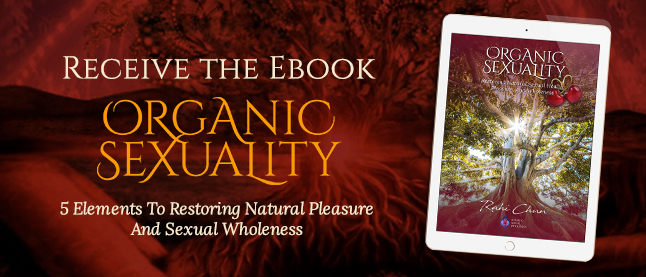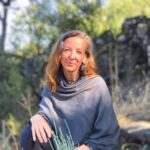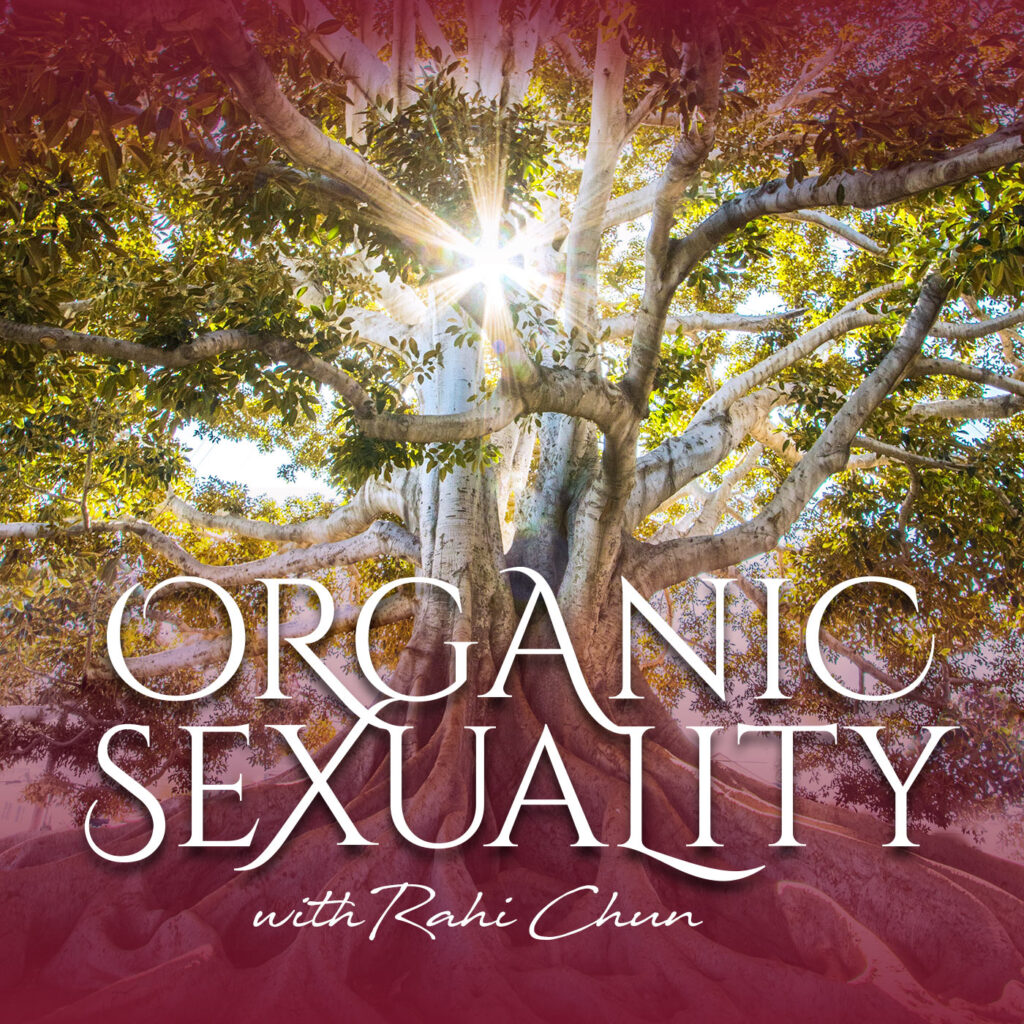
How the Tibetan Five Elements Tantric practices metabolize energy for sexual pleasure with Devi Ward Erickson
Share this episode:
Amongst our sacred sexuality community of professionals, I’ve always admired and appreciated Devi Ward Erickson – for her bold leadership in founding the Institute and bringing ancient wisdom and time-tested Tibetan tantric practices to a Western audience, her own incredible and courageous journey of metabolizing trauma into embodied pleasure & authentic empowerment, for shining a spotlight on how our embodied sexuality affects and is affected by our collective socio-cultural and racial environment… essentially, I love Devi for how she shows up in our world. Her deep study and devotion to the Tibetan tantric arts, practices, and lineage is a testament and reflection of its 1200-yr tradition of transformation and service.
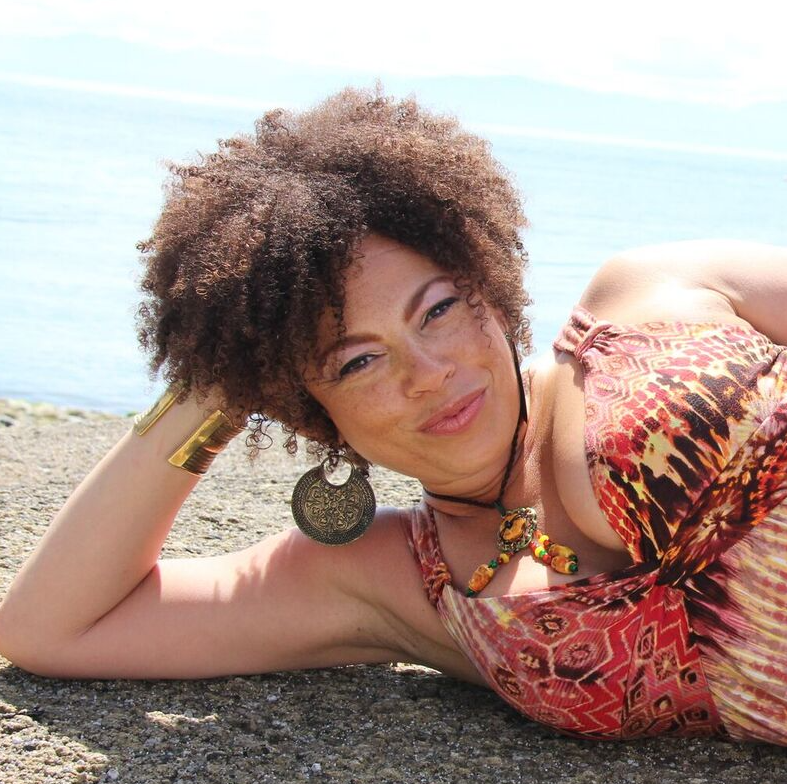
Today’s Guest:
Devi Ward Erickson is the Founder of the Institute of Authentic Tantra Education, the first and only government accredited professional training institute using the Tibetan Five Element Tantric practices for holistic sexual healing. Devi is an ACS Certified Sexologist, Certified Tantric Healer, Certified Reiki Practitioner, Certified Meditation Instructor, and has been teaching meditation and personal growth workshops for over 20 years.
Devi is an author and the Host of Sex is Medicine with Devi Ward Podcast on Itunes and tunein.com. She has been featured as a Tantric Healing Expert in countless articles and over 30 different radio and television networks world-wide including Playboy Radio, Men’s Health Magazine, CBS, NBC and Rogers TV and the movie Sexology with Gabrielle Anwar and Catherine Oxenberg.
We explore:
“It’s indescribable the ecstasy that I was able to experience through my first yoni massage healing session… it was this very tangible experience of having emotional and physical obstacles arise in my body and in my awareness and …relaxing and breathing … moving through that pain… to come into my body and those obstacles purifying, releasing, moving out of the way… and on the other side of them was transcendence… indescribable sexual ecstasy…”
How at 23, Devi took vows as a Monk of the Ishaya tradition to escape the effects of PTSD from childhood trauma, and how 10 years later, it was the Tibetan Five Element tantra practices which harnessed her sexual energies for the transmutation of her past traumas into embodied erotic transcendence.
How the ecstatic bliss of sexual pleasure can serve as a counter-balance for the nervous system to titrate its integration of past traumas, and incentivizes us to stay fully in the body for its deepest integration.
How the Tibetan Five Element Tantric teachings are taught and supported by a 1200-year lineage of oral tradition, and how current-day students are supported by this lineage to heal on the cellular, physical, energetic, and spiritual levels harnessing their core essence.
How each of the Tibetan Five Elements correlates to one of the major energy chakras of the body and how activating them via meditation dissolves each of the root poisons, purifying the physical body.
How each element also has a power or activity and as each root poison is purified and the multitude of our ego’s attachments dissolve, our capacity to manifest and attract enhances.
How Sacred Erotic Dance became a core healing practice of the Institute combining Devi’s love for and background as a dancer with conscious breath, embodied awareness, and the Tibetan Five Elements meditation.
How the 4 pillars of the Institute – meditation, movement, pleasure and connection lay a foundation for the teachings, and how non-violent communication is the practice through which human compassion and connection deepens.
How our society’s socio-economic, cultural-racial hierarchy/environment affects each of our somatic embodiment and interactions with each other, as well as the self-intimacy we experience with our own body.
Rahi: Welcome to Organic Sexuality, where we explore the restoration of pleasure, the reclamation of sexual sovereignty and the realization of our embodied sexual nature. An invitation to honor the pleasures of your body by embodying the pleasures of your nature. I'm your host, Rahi Chun. I'm a certified somatic sex educator, sexological bodyworker and creator of Somatic Sexual Wholeness. Today we invite Devi Ward Erickson to the podcast. I've always been a fan of Devi and how the Institute for Authentic Tantra Education blessed by her lineage of teachers and Lamas is bringing ancient,Tibetan tantric meditation practices and healing to a Western audience for embodied sexual wholeness. I also appreciate her perspectives and understanding of the subtle and nuanced ways in which race and the micro-aggressions of our socio-cultural and racial environment affects and is affected by our individual and collective embodied sexuality today. Rahi: I'm really thrilled and happy and just kind of tickled to be introducing our guest today. Devi Ward Erickson, who is the founder of the Institute of Authentic Tantra Education, which is just fascinating. It combines ancient wisdom of the Tibetan Five Element teachings and meditation lineage - that's been passed down orally over 1200 years, and she combines it with modern-day somatic healing modalities to resolve trauma from the nervous system for healthy and vibrant sexual embodiment. Devi, I'm so glad that you're here with us today. Thank you. Devi: Oh, I'm so delighted to be invited. Thank you so much. Rahi: You're so welcome. So welcome. Devi, I thought a great jumping off point would be asking you if you could share the role pleasure played in your healing journey and the role that the Tibetan Five Element teachings and meditations played in your sexual reclamation and embodiment. Devi: Yeah, well, both of those things are very woven together. So I will say that pleasure was the missing piece, in my healing journey. And when it finally kicked into place or locked into place, that's my entire universe changed. That's when the healing deep healing actually occurred. So before I encountered the five element teachings, which were my pathway of healing through pleasure, I had been a stripper in Detroit, and I had been a monk of the Ishaya order after that for almost a decade. And I committed my life when I was 23. I took vows and became a monk of the Ishaya tradition and committed my life to spiritual realization. And in all honesty, I did that as a way of escaping the pain of living in a body that was full of trauma. So, you know, this was all over 20 years ago, 25 years ago, and the landscape of somatic healing and, being trauma informed, it did not look anything like it does now. Devi: Like all of this trauma informed knowledge is I would say recent in the last decade or so, right. It's really starting to gain more visibility. So 25 years ago, we didn't have the language for that. I didn't understand that I was, that a lot of my symptoms like suicide, dysfunction, depression, I didn't understand that those were symptoms of post-traumatic stress because of my early childhood trauma. I had no idea, I just thought it was broken. And I wanted to find a way to alleviate my pain. And so you know, a turning point for me was when I was around 20 years old, I sat down with a razor blade and a bottle of wine, and was very committed to killing myself. Um, and I've got the scars on my wrist to prove it down and started hacking away. Devi: And at the very last moment when I was going to make the last cuts that I knew would end my life, I couldn't do it. And so that was a moment of reckoning for me, because up until that point, I had been very, uh, suicide was always a backdoor for me, right. It was always like, well, if this doesn't work out or it gets too bad, then I'll just kill myself. And so that was a reality for me up until the point where I was actually really going to kill myself and realized that that was no longer an option. So living in pain, the kind of excruciating unending, agonizing, emotional pain that I was in was also not an option. And so I committed my life to, to finding a way to, to heal, to release myself from suffering, to find joy. Devi: Ultimately, that was my goal. Like I just wanted to like, not feel like I want to die every day. Uh, and so I, uh, was very determined and set out on, investigating and exploring and studying many different therapies. I studied herbalism, I studied Reiki, I studied crystal healing. I studied organic gardening and that's what eventually led me to becoming a Monk in this spiritual tradition. And the meditation practice that we did was called Ascension. And it was very useful for me at that point in my life, because it very was about disembodiment. It was a disembodiment practice. It was about ascending from the physical form and ignoring the body. The body was like an anchor and the body was, you know, this earthly thing and all - t Here was a huge investment in this disembodied altered ecstatic kind of state of being. And that I say, you know, I think of it as having kind of saved my life, uh, for the next 10 years, because instead of being a drug addict to avoid the pain or doing more harmful behavior, to try to ease the pain, I committed to a spiritual path. Devi: I invested in the spiritual path. And, so I got to bypass, alot of.... but I wasn't connected with it as fully. Um, so when I encountered the five element teachings, um, they were presented to me as lineage based methods for harnessing sexual energy and using it for the transformation of consciousness and the realization of enlightenment. And at that point in my life, I was all about enlightenment because enlightenment meant the end of suffering. And I also thought it meant getting out of my body. Um, and I was in for a rude awakening. Devi: because the journey with the five elements and healing through pleasure was about embodiment. And that was the thing that I had been trying to avoid every day diligently for the last decade, and perhaps before that. So it was the bliss of the sexual pleasure that I was being introduced to that fortified my ability to move through the depths of pain that I needed to move through in order to fully inhabit my body again. And for me, the, the sexual aspect was the one thing that I had never tried. Right. I tried all these other modalities. I had tried crystals and ascending and raw foods. I was a raw foodist for years. I thought cooked food was poison. Like I did. I put all kinds of things on my butt for cleansing and drank charcoal and all, all the stuff that you didn't eat for months or days, or weeks or whatever. Devi: Um, and I tried all of that and none of it addressed directly the wound, none of it, it was like a, kinda like a Paliative, but it never alleviated the pain entirely. And the one thing that I had never tried was, was sexual pleasure. I didn't even know it was a possibility. I was extremely ignorant coming into the world of sexual healing and tantra. I didn't know what a G-spot was. I mean, it was just like, I was afraid of looking at my vulva. I was mortified at the thought of, you know, just saying, yes that feels good to a partner in bed. I had all of the social occlusions we have in the society in regards to,, talking openly around sex or even knowing our sexual anatomy, none of that was in place for me. So, so being introduced to tantra as a way of integrating my sexuality into my spiritual path was appealing because I hadn't tried it before. Devi: I didn't even know it was possible. And the experience of, I mean, it was it's, it's, it's indescribable the, the, the ecstasy that I was able to experience through my first Yoni massage healing session - five hours long. And it was this very tangible experience of having emotional and physical obstacles arise in my body and in my awareness, and having my mentor, coach me and guide me for relaxing and breathing and making eye contact. And I was totally freaking out and coming into my body, moving through that pain to come into my body. And those obstacles purifying, releasing, moving out of the way. And on the other side of them was transcendence, on the other side of them was an explosion of white light. And just again, indescribable sexual ecstasy and the ecstasy outweighed the suffering. And that's what kept me going. Devi: And that's why I think, you know, for me, and I think for people that are, that are, you know, have a lot of trauma in the body, why the pleasure is such a necessary counterbalance because we are so as human being so motivated to move towards pleasure. And that's what we're wired for. If it feels good, it's good. If it tastes good, it's good. It's like we're designed for pleasure to be our guide. And yet, for those of us who were traumatized, pleasure was so absent, it's so absent as a lived reality. It's so, you know, like miserly and how it shows up and you get peanuts of pleasure, but not, not bliss. And so to have an experience of ecstatic bliss in my body, that, that like literally erased everything else from my consciousness, that was potent enough for me to be willing, to examine and move through whatever was and get rid of quite frankly, what, whatever was in the way of me experiencing more of that pleasurable sensation. Does that make sense? Rahi: That makes total sense. And I think it's really profound and important. I mean, just to underscore it's like when we are traumatized as young people, it's painful to be in the body and we don't want to be in the body. And, you know, it's really fascinating and ironic that you went into monkhood because the draw was that you wouldn't have to be in your body. And yet during that Monkhood experience, you came upon these tantric practices that put you right into your body, but did it in a way where you were embodying pleasure and burning through the cellular memory of those stagnant emotions and the pain. And yes, the pleasure is a phenomenal counterbalance. And, you know, for those, for the embodied folks who are still carrying a lot of trauma, it is an anchor and a incentive to be, to stay in the body in order to burn through that stuff, because it, it is transcendent and feels so good. You're making total sense, Devi Devi: Yeah. And they also think like pleasures it's, it's like lubricant in a way, like, like not necessarily sexually, but like WD 40. So the trauma is like this clunky blocky constricted hard armored energy, and pleasure is like this warm golden melting fluid. So it kinda like dissolves all those hard spots and just kind of like devours them in a way. Rahi: Totally, totally. That's a great way of saying it. And I think, you know, what we've learned now about somatic healing and resolving trauma from the body is we need to move at a pace that feels safe for the body and having that counterbalance of the pleasure allows for the nervous system to integrate and breathe and be okay and feel good. So then it can go back and burn some more of that, you know, pain and anguish, and then come back to the pleasure. Yeah. I think it's a really wise and, you know, it's fascinating to me that, that your journey unfolded in this way, you know, during your Monkhood to come across these Tibetan practices that invited you back into your body and incentivized you to explore what really that could be in your pleasure. Devi: And, and I think that, you know, the experience that we had as a monk was really fruitful in that it helped me develop,, cultivate meditative focus and discipline. Well, I was extremely diligent to my practice. And so I would regularly meditate for hours a day. Like that was nothing for me. I would meditate in the morning, I'd meditate in the evening. It was just, it was normal. It was a normal part of my day. And on weekends, I would very often meditate all weekend. So that was the focus, that level of discipline was the primary focus of my life. And, and I really think that that, like, it really cleared the ground. It helped harmonize my brain and like, you know, make it so like, if I've encountered the Tibetan teachings before this, there's no way I could have focused because the Tibetan teachings require so much more presence and so much more focus than this other meditation practice that I had been doing. Devi: But the other practice allowed me to just kind of - allowed brain to rest. And I think it allowed my brain to potentially heal a bit from all of that dysfunction that trauma-based dysfunction, so that when I did encounter these five element teachings, and then the more advanced Vajrayana teachings, I had the ability to actually utilize them and work with them as opposed to, you know, just not having the attention span and the focus and, you know, and my training took my tantra training. It took discipline and focus. I mean, I was training five hours a day, four days a week in sexual and non-sexual tantra. So that's like 20 hours a week of focused, you know, Vajrayana Tantra including sexuality. And so it was very, very intensive. Um, it was an intense period of focus for six months. One-on-one with my mentor and then receiving the non-sexual teachings from my Lama. Devi: And we did all of this under the umbrella of the Lamas support. He had given the sexual teachings to my mentor and my mentor formally invited me to train with him. And he informed Lama Tashi that he was going to be training me in these methods and got his approval. So it was very, you know, it was very formal in the traditional sense. Um, and so Lama Tashi was aware of what was happening with me and my sexual practices and could help my mentor tweak and direct them so that I wasn't overwhelmed, by what I was experiencing. Rahi: Mm, wow. That sounds, yeah. Really, really intentional. And the structures and the focus really served your practice and your healing. Yeah, it does sound like the years of meditation really did still your mind and kind of prepared you for the intense kind of concentration that's needed to be present and to explore sensations. So I want to touch upon, and I think in a lot of Eastern practices, there is that teacher to student, you know, transmission, if you will, because it's very important when we're working with energy practices that it be used correctly. And so it's kind of like you have the whole, you know, 1200 year lineage supporting you and supporting this practice to whoever, whatever students it's being disseminated towards. I mean, this is what makes, I think your Institute really, really unique. I mean, in addition to being the only government accredited tantra Institute, I think in the world, but you know, the fact that it's really carrying on this sacred oral tradition and practice in a way that's supported by this lineage. Devi: Yeah. Yeah. And we teach with the blessing and the permission of our, and he's very excited about what we're doing when he, when we talked to him because he sees the healing potential. Like these are our ancient methods that literally heal on the cellular level. They heal on the physical level. They heal on the energy body level. They heal the mind heal the heart. They reconnect us with our spiritual essence. And so the fact that they're able to be proliferated widely in the West in a way that's very accessible to people who may not otherwise be attracted to them. A lot of the people that we work with aren't necessarily attracted to Tibetan Buddhism, Tibetan Buddhism is very complex, right. But they are very attracted to healing and they are very attracted to connection with their environment, with their elemental environment. We, as human beings, as a society need to know how to work with our sexuality, engage with our sexuality from a standpoint of love and compassion and healing and transformation. Like that is what our sexual energy is for. It is transformative energy. And for us to not know how to work with that constructively and skillfully is it's a sacrilege, in my opinion, it's misconduct to not allow us access to these teachings. Rahi: Yeah, yeah, absolutely. And so in regards to the teachings, Devi, the Tibetan five element meditation, if you can describe that a little bit, because it seems like it is a conscious generating and conscious channeling of sexual energy in order to open up and clear obstacles from our energy chakras or energy centers. Devi: Yeah. So first we have to learn the non-sexual application of the five element meditations, right? So that's the way we teach. And that's, that's how I learned too, is first before you can do run all this fun energy sexually, you have to be able to do it non-sexually. You have to be able to cause it's visualizing and chanting and you know, there's all this stuff going on. And before you can add sexual fuel to that, you have to be able to do it non sexually in a non triggering environment, so the speak in a less dynamic environment. And so we learn how to do them as a sitting meditation first and each element corresponds with one of the major energy centers of the body. So when this tradition, the Tibetan tradition, we work with five major chakras. There are seven. Devi: So the chakra on the crown and the chakra at the root are considered caps. And the root chakra is red. And that said to contain the feminine essence of the body and the crown chakra is white. And that said to contain the masculine essence of the body, and they're viewed as caps to keep the energy in the body. So there's other traditions that like to shoot energy out in the crown of the head, or, you know, disperse energy. We don't want to disperse anything. We want to keep it in the body. We want to use it for transmutation and transformation. And then we want to, you take that energy. We want to bring it out into the world to benefit others, to build the first government accredited school for tantra to build, you know, institutions we want to cultivate and we want to use it. Devi: So, so those are the caps. And then in our pelvis, we have our fire element chakra. So fire is the sexual fuel, right? If we think of sexual energy, it's burning, it's hot, it's fiery, it's dynamic, it's luminous, right? So there's fire in the pelvis. There's earth at the navel for grounding - for stability. Space elements is in the heart and space elements is considered the mind, the true mind, the universal mind. And I love that it's in the heart because space is universal and infinite. And so is our capacity for love and love is the ground of all tantra. If there is no love, there is no tantra. So everything about, in this tradition, the Tantra tradition, and I'm studying Tibetan medicine right now, even, you know, practicing medicine must be rooted love. And then we have air in the throat and we have water in the center of the skull. Devi: And so each of the elements is an antidote to one of the root poisons of human emotion. So the five root poisons are anger, attachment, pride, jealousy, and ignorance. And so working with the elements and enriching them and using these lineage based methods to charge them and activate them, helps dissolve those root poisons in our stream of consciousness at the level of consciousness itself. And it also begins to dissolve the chemical reaction of those poisons in our physical body. So purifies the poisons. Also each of the elements has a power or an activity. So as that root poison is purified, it awakens or activates our ability to manifest, to magnetize, to enrich, to pacify, to heal and to create. Devi: Then also each of the elements brings a wisdom with it. So as that elemental energy builds in the body and the energy body, the physical body and the consciousness itself, it begins to open our awareness so that we're able to access and different types of wisdom and knowledge. So for instance, fire element, which is our sex chakra. Interestingly is the antidote to attachment. It has the power of magnetizing and attracting, and the wisdom that it brings is discernment. So the way all of those pieces fit together for me is, you know, what, one of the biggest sufferings in our society, in my opinion is our, is our sexuality - is the ignorance related to our sexuality. And as a result of, you know, having dysfunctional fire element chakras, there's a lot of attachment in the world. And attachment breeds, all kinds of suffering attachment to money is why there's people starving in the United States right now, attachment to our belief systems attachment to our tradition. So attachment causes all these different types of suffering attachment to outcome, right? And as our sex chakra heals and purifies and becomes more balanced our propensity to attach to things, lessons as our attachment dissolves, our ability to magnetizing attract all suspicious things into our life, it becomes more enhanced. So we're able to draw to ourselves resources, experiences, people, opportunity to support our growth and to support our experience of joy in the world. Rahi: Yeah, so it is a very, very, I mean, using the energy centers of the body and understanding what the elements are, what they magnetize, what emotions they're susceptible to really allows for this dynamic release and healing through channeling our energy burning through the obstacles or the stagnation in each of those energy centers. And in, so doing, releasing the obstacles to our emotional obstacles or our pain body, essentially. Devi: Exactly. And each of the elements also has a quality, like I think of it like a flavor, or just like a bath, that's just kind of like the energy that you swim in. And so fire elements, again, the quality of fire elements is bliss. So this is the connection for me is I, you know, talk about, you know, sexual tantra and living an orgasmic life and blah bubbly blah. Well, again, when our sex chakra is healthy, balanced, enriched, activated, you know, just the way it was meant to be, then we live that our consciousness is infused with bliss, not just sexual bliss, but bliss is a state of being, this is a state of consciousness. Rahi: Yeah. Beautiful, beautiful. So Devi, can you help us understand, like, take us through, so you went into monkhood the meditation prepared you for the Tibetan practices here you are prepared and going through a very regimented, intense, and also like supervised process that invited you back into your body and invited you to embody exquisite sexual pleasure to burn through all of these obstacles and the pain body. Like where did you go from there to birthing the Institute and incorporating your life's journey of understanding healing modalities? Devi: Yeah. Yeah. So when I first started my Tantra training with my mentor, I had no idea what they were saying yes to, and if I had known, I probably would not have said yes to it, because even though there was all this pleasure and there was also a significant amount of pain that I was unprepared for, like, again, I didn't know anything about trauma. So when I started hitting into those, you know, those trauma blocks and those wounds, I was overwhelmed at first because I didn't understand what was happening, but again, the result was it. So not just the sexual bliss, but also my ability to feel for the first time - to actually feel my body for what seemed like a first time in my life. And when, when I would stand in front of another person and talk with them for the first time in my life, I could actually feel that energetically, I could feel another human being instead of like floating above the top of my head and looking down. Devi: So I'd committed to the six months. And it was like, I had finally found my purpose in life. It, I honestly, you know, I'm not exaggerating, like the heavens parted the clouds, part of the heavens opened up like mana fell from heaven. It was like, Oh my God, this is all the experiences of my life. Up to this point, the being a stripper, you know, the, like all, everything started to make sense and fit into place with the integration of the sexual healing that I was experiencing. And my mentor had the desire to start a school for tantra on the Island of Hawaii. And so, as we were going through this training, he was, you know, I was a very good student, so it's like, Hey, you might want to be part of this school. And again, I was like, wow, yes. Devi: Having a school for tantra where we're teaching these ancient lineage based sexual and non-sexual healing methods of they've never been taught this way ever in the West. Like it was, it was, you know, this pioneering thing. Um, and so that was the intention. So after my training or through my training, I'll say, uh, it arose to participate in, in the development of the school. Well, that didn't happen the way we thought it would. Um, and so we moved to Vancouver, Canada, and began teaching, establishing, establishing our business there and began teaching Tibetan five element tantric workshops. Um, but to answer your question about weaving and all these other things, for me, it was born out of my curiosity to understand what was happening to me, but I was relentless about finding out like okay, So why, how can I have all these orgasmic experiences? Devi: And what's happening in my body? Like, you know, this, like when I come up to these things and you know, when I go through with move through a block and then I feel healed afterwards, like, what is that healing? I wanted to understand the mechanism of it. Um, and so I dove into learning about somatics, learning about how the body heals itself. And I was also a dancer and so movements has been my jam my whole life. So I developed a technique where I worked with the five element practices in movement and breath to open the body and to release in a way that was again, less intense and dynamic than sexual, than the sexual experience, and then began to teach that on the Island. So I developed a modality called sacred erotic dance. And then I wove the five element teachings very naturally on onto it, and, you know, checked in with my Lama to make sure it was all correct. Devi: And he's like, yeah, go, go girl. And then I began to work with people using this movement and using, combined with the five elements in breath and awareness. And I had phenomenal results. I had people, I worked with women who had experienced severe sexual trauma had been in therapy. This one moment had been in therapy for like 16 years, had very little growth. And she worked with me for three months and transformed her life. And her therapist actually came up to me at an event and said, I have no idea what you're doing, but please keep doing it. I've seen more growth in this woman in the three months that you've been doing this movement work with her than I've seen in the last 16 years doing talk therapy, so that really cinched it for me is, is that like we can talk all day long about our healing and our trauma. Devi: But when we get into the body, the body has its own wisdom and its own intelligence. And this is also taught in Tantric Buddhism that the body is Buddha, all wisdom, knowledge and power is contained in the human form. So I kept getting these directions to come back home to the body. And that had been my experience with the sexual healing coming back, home landing in my body. Yeah. So I just studied, I learned, I wanted to know what was happening and how it was happening. And so I access the resources that I could, like I said, I read lots about somatic healing. I listened to Peter Levine, listened to the experts that were available at the time. Um, you know, continued working with the five element teachings. And then I also had, and then I will say, beyond the five element teachings, I took refuge in the Shankyu Kagyu lineage. Lama Tashi is my root Lama and I dedicated my life and my path to Vajrayana Buddhism. And so I, you know, aside from the five elements, I began working with some of the more advanced Vajrayana, nonsexual teachings, and then eventually received permission to weave those into my sexual practice as well. So it was just, again, my curiosity about my own healing process, wanting to understand why it was happening. And then once I knew what was happening for me, I'm like, well, everybody needs to know this. Rahi: Sure, sure. Absolutely. Devi: Because my healing is so profound, you know, going from suicidal, depressed, completely dysfunctional loss to like, you know, a bright shining light in the world. It's like it, everybody else needs to know how to do that. Rahi: Absolutely. Yeah, absolutely. So that makes so much sense Devi. Like your curiosity of your own just incredible transformation led you to dig deep and find answers as to how you transformed. And, you know, I love that. I love that you've, you've interwoven the five elements with movement because it is such a gentle and fun expression of embodiment whilst engaging in this safer habitation of our bodies. So this brings me to a question because I saw, you know, the four pillars of the authentic tantra Institute, meditation, movement, which you've mentioned, and then connection and pleasure. Now we understand how meditation and movement became two of these pillars. Pleasure is a natural kind of result of connecting inwardly, getting into our sensorial pleasures. Can you share how the connection of the four pillars interweave with the other three and how vital each one is to the other? They all seem to compliment each other. Devi: Yeah, thank you. Yeah. So the connection pillar, everything is born out of connection, right? Connection to ourselves, connection to source connection to each other connection is the medicine that heals. Ultimately when we're talking about healing, trauma it's connection, right, is the antidote to trauma. Um, and for me at the same time, my time in Kauai, I really think of it as like as my grad school. So not a formal, but I mean, I was studying diligently along with the Buddhism, along with teaching movement, I was also training in nonviolent communication. So, I trained from 2005 until I left the Island in 2010, under my mentor, Isa Maria, who is a, one of the most incredible nonviolent communication facilitators I've ever seen. And I've, you know, went to New Mexico and study with Marshall Rosenberg for a retreat as well. Devi: And Isa was, like on par with him. Um, and so for the connection piece for me, was really rooted in the nonviolent communication aspect because again, nonviolent communication for me was the, was, was how we practice compassion. It's the actual technique and the method for how to be compassionate, compassionate with ourselves and compassionate with the rest of humanity, understanding that all of our emotions and feelings are indicative of a deeper underlying need. And that that need is the connection or when we connect with the need, we connect with our humanity. So the more fully I can connect with my need, the more effectively I can function as a human being, that's where it started for me. And, you know, the way I communicate with myself is also the way I communicate with other people. So Isa Maria has a very unique approach to NVC, which is, or she did at the time I was studying with her, which is really that, you know, NVC is very often taught or nonviolent communication is often taught as a way to communicate with other people, but you're just like, let's look at how you communicate with yourself, let's address that, you know, and the only thing that's really ever going on in any is what am I feeling? Devi: What am I needing? That's the only thing that's ever happening, no matter what other drama is happening, what am I feeling and what am I needing? So that is like anchoring back into the body and connecting fully with ourselves. And then from there we connect externally. Right? And so I, we have a variety of techniques that we use to enhance connections. So, like I said, nonviolent communication is one of them, connecting with a partner through Tantra, speech and words of appreciation and Tantra, union breathing, connecting with the elements through the elemental meditation, or just our essential awareness. So connection is really the core of the foundation and all of the pleasure and the movement and the meditation are all ways of enhancing and deepening our connection to ourselves, connection to our universe, connection to our environment. Rahi: Um, yeah, one of my supervisors for neuro-affective touch, she often speaks about how in the same way that trees and plants gravitate towards the sun for sunlight, the nature of human beings is to gravitate towards connection, connection and aliveness. And, you know, both of those, the connection and aliveness are the pillars of what your Institute offers. Um, and I love how you spoke about, you know, ultimately it is connecting that intimate, developing that intimate connection within ourselves, which the meditation nurtures, which the movement nurtures within our own body, you know, the pleasure within our own body. It really starts from there. And then from there, it's like we can connect and experience pleasure with anything. Devi: Exactly. Yes. Spontaneously arising, joy and our emphasis in the pleasure practices is very much about cultivating our solo pleasure. So this includes sexual pleasure. So we talk about, I talk about the four forms of pleasure in my book, I talk about a physical slash sensual pleasure. So anything having to do with the physical body like movement and the five senses, emotional pleasure, those things that fill our heart, expand our heart, open our heart, spiritual pleasure, those experiences that help us feel connected to a greater sense of self, whatever that is for you. And then sexual pleasure and sexual pleasure is its own unique guide. I delineate as its own unique form of pleasure. A because it often gets pushed to the side and B because it is so dynamic because, you know, I can have all kinds of other sensual pleasure going on in my life, baths and massages and all of that. Devi: And when I add sexual pleasure, it's like adding magic. Like it's, there's something unique that can, it's an irreplaceable about our sexual pleasure. And so in the work that we do, we really emphasize people connecting with their own bodies and their own pleasure. It's sexual, emotional, spiritual, or central, and cultivating. That is a practice cultivating pleasure consciousness, right. And which is a reframe because we live in a paradigm of pain that emphasizes and glorifies pain. So it's like a revolution of consciousness to orient our awareness, to seek out and find pleasure and to emphasize pleasure to prioritize pleasure. And so we do that within ourselves and then we invite a partner into that loop. So instead of, you know, the old many, many, the conventional thing is, well, I'm going to get them, I'm going to have a partner. Then I'm going to be happy, or I'm going to get a partner. We're going to study tantra together. For us. And for me, it was no I'm going to root in my own tantra practice because I've been single as a Tantrika. And I deepen my own personal practice. And then I invite my suitors or my consorts into my tantra yoga practice. And then we practice together. Rahi: It's so reflective of your own healing journey of how pleasure was medicine in your life. So it makes so much sense that the foundation of the Institute would reflect that as well. And that is how we ultimately heal. It's an inside job. Devi: Yes it is. And yeah, and it has to - pleasure is lube - pleasure is lube. . Rahi: The other thing that I wanted to highlight about what I find unique about your Institute and it's, it's reflected everywhere in your podcast, Sex as Medicine with Devi Ward podcast and YouTube channel, which is fabulous, is the understanding of the socio-cultural conditioning in our society and within our bodies and the role that, that plays in keeping us disconnected from our own body's pleasure. And as a result from each other, you know, like when I was, going through different tantra trainings in schools, there was never an understanding of how integral that is in the way it impacts our collective sexual embodiment and our intimate sexual relations. And so I really appreciate how the lens through which you're educating about our sexuality is through this lens of how, we're we're conditioned through society and our social culture. Devi: Yeah. And again, that, that arose out of my own healing. So I, you know, I think that I will say that a lot of, you know, the tantra in the West, the Neo tantra has been predominantly, it's been dominated by white, the white society. And so I haven't had the privilege of ignoring the social dynamics because I am a biracial black woman. And I was born in 1974, which was only five - Like my parents got married, legally got married the year. that they wouldn't go to jail for it, which was 1969. Like, you know, like it's phenomenal to me that my parents would have gone to jail for getting married one year earlier. Right. And that's, and I was illegal. It's mind blowing, it's mind blowing. So I have not had the privilege of ignoring that. I've been told from the time I was a child that I did not belong here. Devi: That I was an abomination, like no joke from the time I was a child, I was told that I was an abomination by our society. So I haven't had the privilege of ignoring the impact that that has had on my humanity, my sense of self and my sexuality. Right. So I think that's part of why there's the gap is, is because of the social factors, such as privilege, such as, you know, white supremacy, if you don't have to deal with the pain ever in your life, you have the privilege of remaining ignorant of it. I did not have that privilege. So that was one of the first traumas that I hit into was all of the racism and all of the racial self-hatred that had been conditioned into me and was stored in my vagina and affecting my sexuality and affecting my sexual choices also because I was so ignorant around my own sexual potential, I was mad. Devi: I was, I looked at society. I'm like, how did I go, 33 years of my life. And nobody told me where my G-spot was. And I got to see really clearly how, how the way we are conditioned in the society, or I'll say we were, you know, I'm a gen X-er and I, you know, things were changing with other generations, but I'll say with my gen my generation, the way we were very conditioned of, you know, what it is to be a good girl, what does it look like to be a good girl? Don't speak up. You know, don't say what you like in bed, don't pretend you don't like sex. You know, acquiesce put up a fight, like all these messages that we are given in society about, about how we need to perform sexually in order to receive acceptance and love and connection. And because as you said, we're so motivated by connection. We'll turn ourselves into pretzels. We'll tie ourselves into knots to get that nourishment of connection, however we can. And so the - everything that we emphasize in our school is because that's all that I had to deal with. Essentially, again, it's not, I wasn't like into like, Oh, we need to look at this. It was like, this is, this is, these were the wounds. And, and I know that I'm not the only one who carries them. Rahi: Well, absolutely not. And what you're speaking to about the ways in which we tie ourselves up as pretzels to feel accepted, to feel connection is different based on our culture, our race or socioeconomic class, all of that. I mean, there's a, you know, a kind of a power hierarchy that reflects safety and a sense of belonging in our society that isn't really talked about in sexuality, but it exists there and it's profound in the way we feel ourselves. And we engage with each other sexually. Devi: Yes. Yeah. Well, for me, again, my experiences, uh, so my mom was white and my dad's black and they divorced. And so I lived with my white mom and the white suburbs, and I was very often the only black person, you know, certainly the only biracial person in any of my schools or neighborhoods. And so as a teenager, I had very clear experiences of, you know, white boys wanting some, having jungle fever. Right. They did, they wanted to, they want to have sex with me, but they didn't want to date me. Right. So that informs my, my sense of worth and value as a woman, as a sexual being, it's like, okay, so the white boys want to fuck me, but they don't want to date me. Or, you know, having, having a crush on a guy. And it was a very mutual, cute little white boy that very mutual. And his sister had told them that he was dating me and his parents threatened to kick him out of the house if he didn't break up with me because I was black. So these are, you know, of course it's going to impact my sense of Self.. That's going to, and of course, it's going to influence my sexuality. Rahi: It is a trauma. Yeah. And it's all of these micro-aggressions that add up and that gets, you know, affects our sense of safety or our sense of hyper-vigilance when we are engaging sexually or interacting even socially. Devi: Yeah, absolutely. Absolutely. Rahi: I mean, that could be, I mean, that's such a big topic. I hate to just kind of touch on it, but I do want to ask you before we wrap up, I mean, here, you've created this incredible Institute, it's training people it's been really successful. Where does it feel like it wants to go next? Devi: Yeah, that's a great question. Well, expanding our team. Uh, so, and we all have different roles that we play. And so my husband for instance, is, was a professor at university of British Columbia. And he ended up leaving Vancouver, UBC, and moved here to Colona. And he is now the senior educational administrator for the school. So we actually have an actual Dean with PhD and all that. And so, he's actually working to get our next level of accreditation from the government, which is called officially called designation, which would allow our students to apply for student aid. Right. So that the school that the government would pay for people to be authentic Tantra practitioners. Rahi: Yeah. Devi: But then we also do have some students, graduates and potential students and graduates in the United States. We're very excited about what we're doing, who wants to start moving it in institutions. So we have one woman who is a student at Widener University who was doing her practicum with the Institute this year. Uh, and she wants to be, she actually wants - she's a veteran. And so she wants to work on getting a VA loans to pay for the certification training. Um, so what I see actually is the Institute penetrating more institutions with the help of people that are excited about the vision of what they contribute and then expanding our core teams. So in 2021, we are bringing on more of our graduates to act as instructors for our training programs. Right. So we have, we have incredible graduates. I mean, they're so well-trained, and that's so amazing, such incredible healers. So I see this expansion in this infiltration, this penetration of the institutions to make these teachings even more accessible. I want, I mean, ideally I'd like to, I say mainstream, but not mainstream it in the way, like it loses its Rahi: You don't want to water it down it's so yeah. To make it more available and yeah, absolutely. That sounds great. So, I'll have the link to your, certainly the website and the podcast and the YouTube channel in the show notes. Um, yeah, this is very exciting and you know, I must say like your, I love your podcast. It's just so real. And it, you know, I love how you highlight your very talented graduates as well. And you speak about issues that I don't see really being discussed elsewhere. Um, and it's just, I think a phenomenal service and just a great resource for everyone. Devi: Thank you. Thank you so much. Rahi that means so much. Rahi: Absolutely. Devi thank you so much for being who you are for shining your light and for being with us today. Devi: Thank you so much for having me. It's an honor and a delight Rahi: And delight. Rahi: How is this episode landing in your body. When bringing your awareness to your body's sensations,..What do you notice and where in your body are you noticing them? Without judging what you're experiencing.. Can you bring a self-compassion to any parts of your body that are calling for your attention? And if it feels right for you, how about bringing pleasure to the body parts that are seeking comfort, curiosity, and connection, What kinds and quality of touch feel good to these areas? How would it be to breathe into those sensations and exhaling through a juicy reverberating vocalized sound, giving voice to those sensations and feelings. Next week we invite Mathias Schwentech whose dynamic body of work Somatic Consent provides a safe and clear structure for the body's touch receptors to explore the kinds and quality of touch it wants through containers of consent and connection. If you enjoyed this podcast, please subscribe, share with your tribe or leave a review. Until next time, take good care.
Enter your name and email address below to receive insights behind each Organic Sexuality Podcast episode and the ebook Organic Sexuality, 5 Elements to Restoring Natural Pleasure And Sexual Wholeness
Get Podcast Updates
Featured Episodes
With some of the wisest Somatic Sexologists in the Field.
Dr. Aline LaPierre
Creator of Neuroaffective Touch Therapy and author of Healing Developmental Trauma
Susanne Roursgaard
Psychotherapist/Sexologist/
Devi Ward Erickson
Founder of The Institute of Authentic Tantra Education
Dr. Liam Snowdon
Co-Founder: Somatic Sex Educators Association
Kimberly Ann Johnson
Author of The Call of the Wild & The Fourth Trimester
Dr. Ellen Heed
STREAM: Scar Tissue Remediation and Management
Keli Garza
Founder of Steamy Chick & The Peristeam Hydrotherapy Institute
Kris Gonzalez, L.Ac.
Founder of The Way of Yin
"Coocky" Tassanee Boonsom
Founder of Loi Kroh Traditional Thai Massage School
Dr. Betty Martin
The Wheel of Conset & Author: The Art of Receiving and Giving
About the Show
We explore the restoration of pleasure, the reclamation of sexual sovereignty, and the realization of our organic sexual wholeness. We engage with leading somatic therapists, sexologists & sexological bodyworkers, and holistic practitioners worldwide who provide practical wisdom from hands-on experiences of working with clients and their embodied sexuality. We invite a deep listening to the organic nature of the body, its sexual essence, and the bounty of wisdom embodied in its life force.
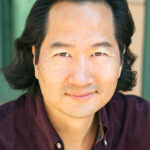
Rahi Chun
Creator: Somatic Sexual Wholeness
Rahi is fascinated by the intersection of sexuality, psychology, spirituality and their authentic embodiment. Based in Los Angeles, he is an avid traveler and loves exploring cultures, practices of embodiment, and healing modalities around the world.
